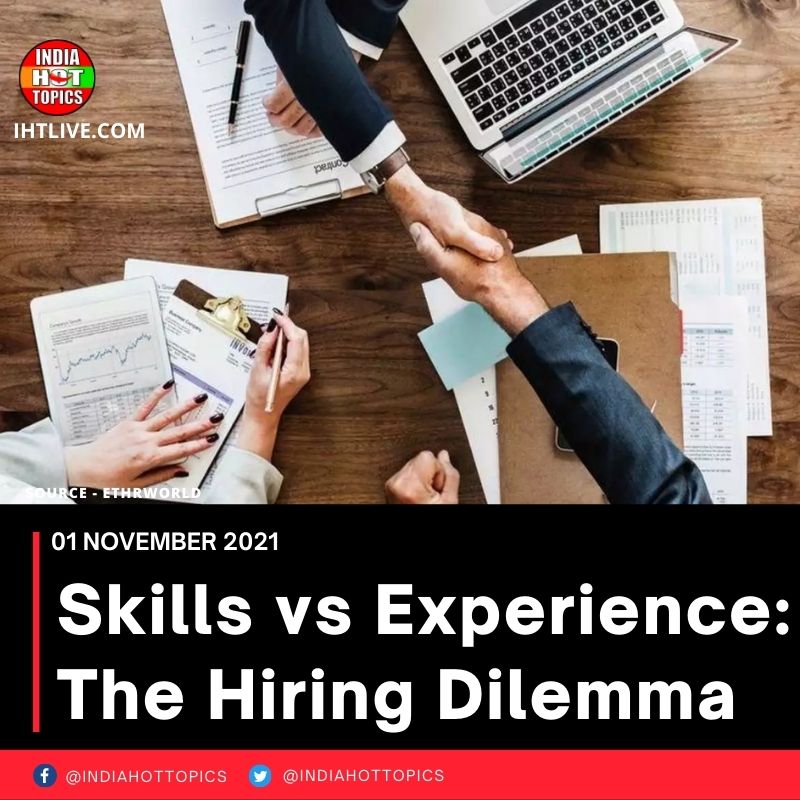This is an old question when it comes to recruiting talent; you have many candidates to choose from, some have many years of relevant experience in the field, some have less experience, but attitude, enthusiasm and all soft skills can play a role .
For many business leaders, experience trumps skill in most cases. Individuals with good track records and references are safer than those who have not managed to get that much. However, this person is not always suitable for your position. The best recruitment strategy is to keep an open mind. People with less experience can still be valuable assets for your sales team, especially if they have the key soft skills you need; problem-solving skills, business acumen, and strong communication and sales skills.
Here, let’s take a look at the value of hiring someone with years of experience or candidates who perform well in interviews but may need on-the-job training.
What is the value of sales skills and experience?
One of the main benefits of improving the skills of new employees is of course that you will know exactly what their training covers, and as a blank canvas, you can hone the soft skills they must have and shape them into ideal employees for your business. It may be a course involving customer management, customer service, or sales skills, but no matter what you learn from them, you will know that these new skills are carefully selected to meet your specific business needs.
For people with experienced resumes, the situation may be just the opposite. It may describe the precious work of managing teams, creating new businesses, and even successfully changing the destiny of the company over the years, but you can never be sure what different roles require. Understandably, candidates will “talk” about the experience to make it fit your needs, and although they may eventually match your business very well, it is wise to lower expectations during the recruitment phase.
Measuring soft skills
If you are hiring for a sales position, it is also important to consider what it takes to become a salesperson and what you want people to provide. Some of the most important traits are actually soft skills.
When recruiting, excellent communication skills should be your top priority. The ability to listen correctly and respond appropriately within the team and in the face of customers is a valuable skill. The best candidates know that building rapport, building trust, and earning respect are the basis for building a strong sales momentum. At the same time, they also have the ability to complete transactions, negotiate, sales acumen, and effectively solve problems.
When it comes to recruiting leaders, soft skills are also important. This is the most common area of skills and experience. You will face candidates who have been there and done it, and those who want to stand up and prove themselves. Normally, you will see the potential of a person who has little or no specific leadership experience. Using the right training tools can relatively easily honed the basic skills of leadership.
Should you use sales training?
Whether you are hiring or not, most employees will benefit from sales and leadership training. Well-designed training courses will equip key personnel with the skills that will have an impact on the entire operation.
For example, senior employees may become confident when dealing with underperforming people and setting KPIs to make results measurable and consistent, or they may learn how to best motivate different types of people to do good work. Quality training can help anyone in leadership roles reduce passive and more strategic work, seek long-term gains rather than short-term victories, and effectively prepare salespeople to enter customer-facing roles and have an impact from day one.
Whether you choose an experienced candidate or a candidate with attractive personality, quality training in Pareto’s Law is always a prudent investment and will bring returns in the next few years.
News Source : Pareto law


 Ranbir Kapoor4 weeks ago
Ranbir Kapoor4 weeks ago
 Mahakumbh3 weeks ago
Mahakumbh3 weeks ago
 Sunny Leone3 weeks ago
Sunny Leone3 weeks ago
 Parineeti Chopra4 weeks ago
Parineeti Chopra4 weeks ago.jpg)
.jpg) Bollywood2 weeks ago
Bollywood2 weeks ago
 American Dream2 weeks ago
American Dream2 weeks ago
 Pahalgam Attack2 weeks ago
Pahalgam Attack2 weeks ago
 Trending4 weeks ago
Trending4 weeks ago













.1.jpg)









